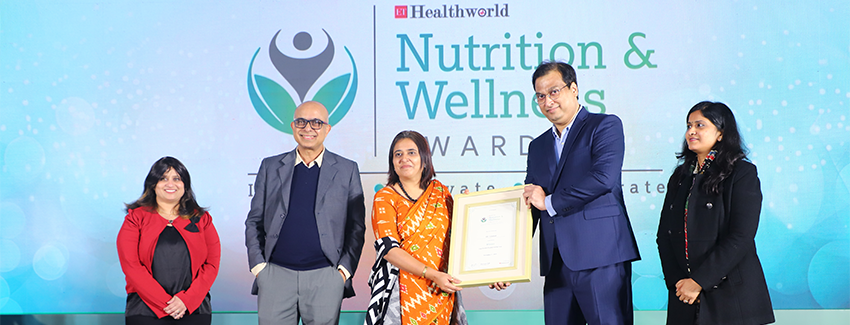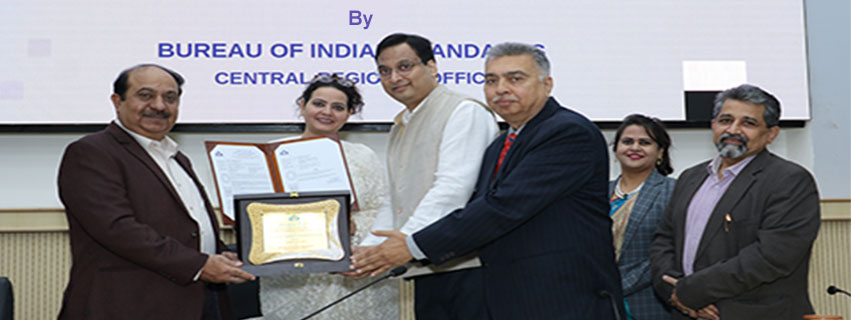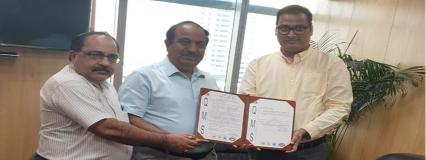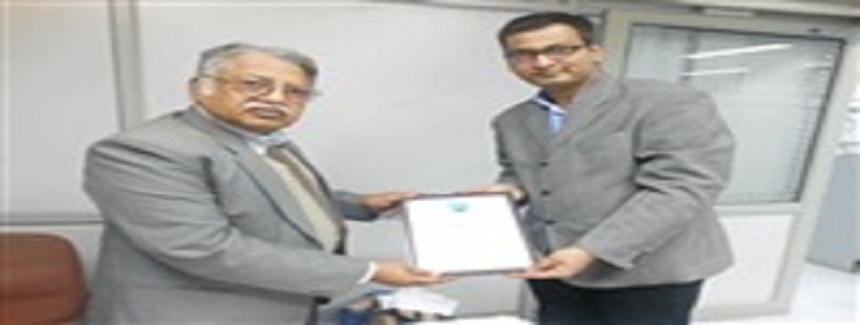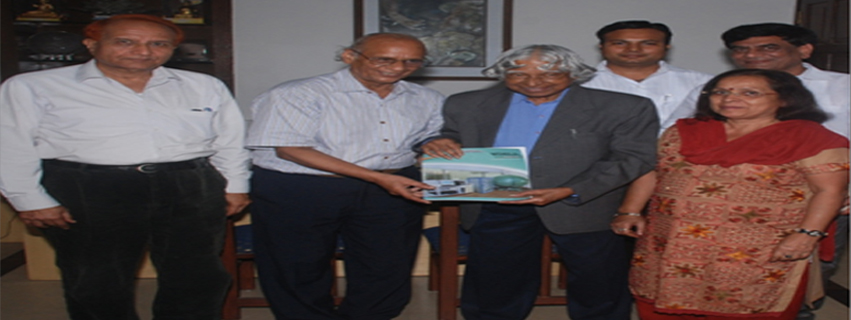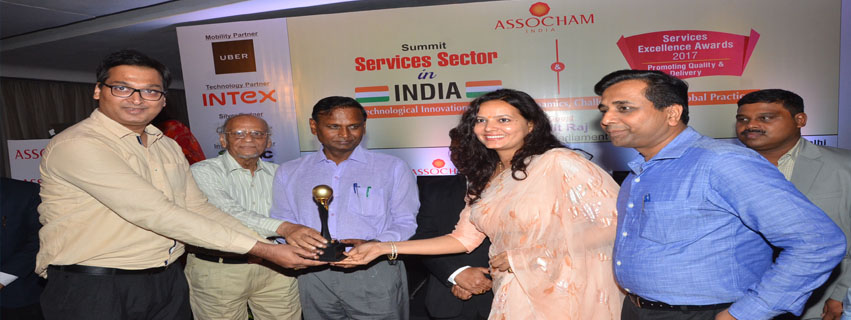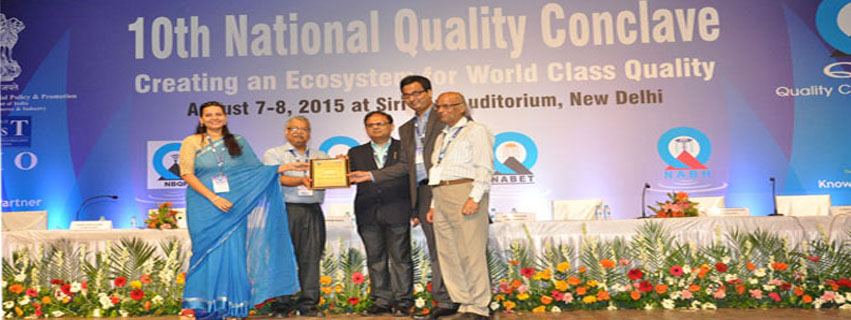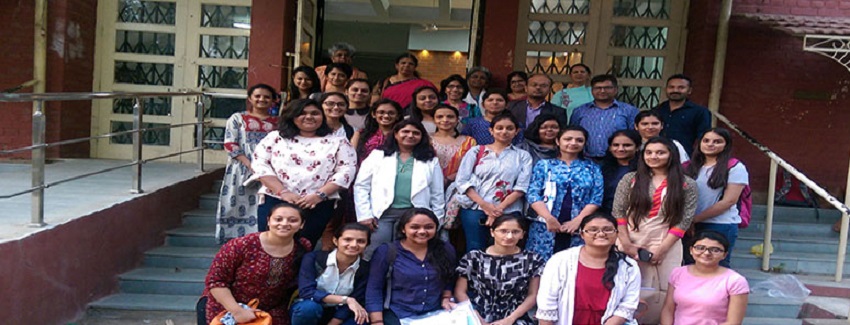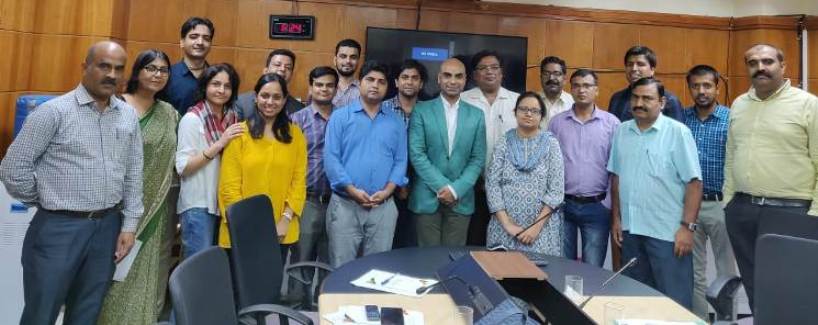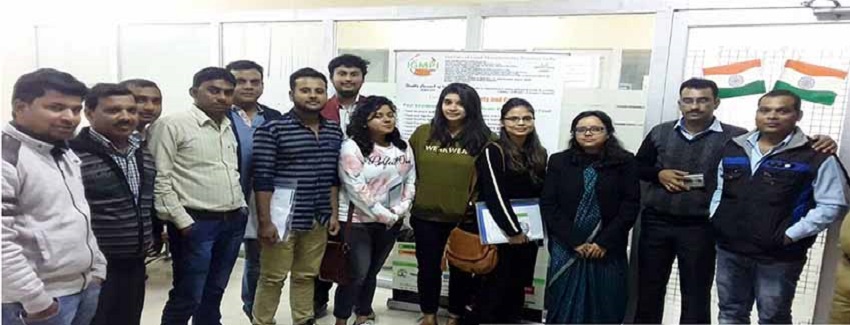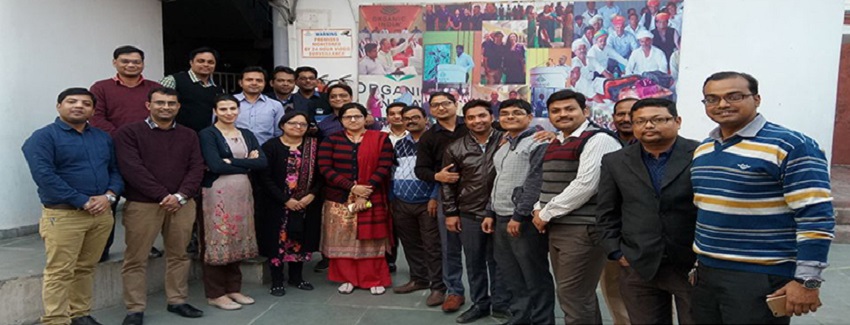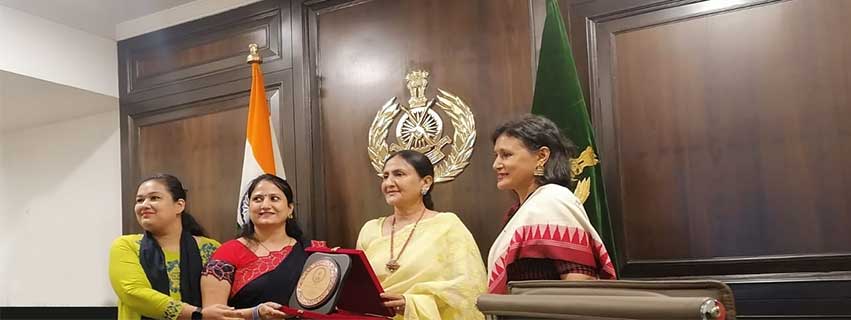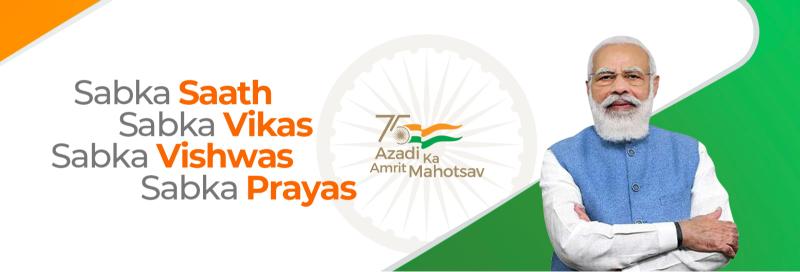(An Autonomous Body Recognized by Ministry of Commerce & Industry, Government of India)
Competency based placement focussed Education | Training | Research | Consultancy
Post Graduate Diploma/Executive Diploma in Natural Resource and Biodiversity Management (PGDNRBM/EDNRBM)
The rapid depletion of natural resources and biodiversity loss presents critical challenges to ecosystems, economies, and human well-being. Exacerbated by climate change, deforestation, and pollution, these issues demand urgent action and expertise in sustainable management. To address this need, IGMPI offers a range of programs in Natural Resource and Biodiversity Management, including a PG Diploma and Executive Diploma.
The diploma serves as a gateway to high-impact roles like ESG Analysts, CSR Managers, Corporate Governance Specialists, and Sustainability Officers. It provides participants with hands-on experience in regulatory compliance, sustainability frameworks (GRI, SASB, TCFD), and impact assessment. Additionally, the program enhances leadership, communication, and ethical decision-making skills, making graduates well-positioned to drive change and shape corporate strategies. With corporations striving to meet global standards on climate action, social justice, and governance transparency, the relevance of Corporate Affairs Management is only set to grow, offering lucrative career opportunities and significant contributions to sustainable development.
These programs equip professionals and students with the skills necessary for effective natural resource conservation and management. Through a blend of theory and case studies, participants gain a science-based understanding of ecosystem dynamics, conservation strategies, and sustainable resource utilization, preparing them for careers in environmental conservation, sustainability management, and policy development. A strong focus on environmental policies and governance ensures a thorough understanding of the regulatory frameworks governing biodiversity conservation.
The curriculum develops both technical and managerial competencies, preparing graduates for roles in diverse sectors, including environmental consultancies, government agencies, NGOs, and corporate sustainability teams. Participants will be equipped for leadership roles in policy formulation, impact assessment, corporate sustainability initiatives, and conservation projects. By bridging the gap between science, policy, and industry, these programs cultivate future-ready professionals capable of driving biodiversity conservation and sustainable resource management.
Programme Structure
Module 1: Introduction to Natural Resources
- Definition and significance
- Classification of natural resources (renewable & non-renewable)
- Principles of resource management
- Ecosystem services and their valuation
Module 2: Introduction to Biodiversity
- Definition and components of biodiversity
- Levels of biodiversity (genetic, species, ecosystem)
- Role of biodiversity in ecosystem functioning and human well-being
- Biodiversity hotspots and global conservation priorities
Module 3: Threats to Natural Resources and Biodiversity
- Deforestation, habitat loss, and land degradation
- Climate change and biodiversity loss
- Pollution (air, water, and soil)
- Overexploitation of natural resources (fisheries, forestry, wildlife)
- Invasive species and their impact
Module 4: Biodiversity Conservation Strategies
- In-situ conservation (protected areas, national parks, wildlife sanctuaries)
- Ex-situ conservation (seed banks, botanical gardens, zoos, gene banks)
- Community-based conservation and participatory approaches
- Ecological restoration and rewilding
Module 5: Sustainable Development Goals (SDGs) and Biodiversity Conservation
- SDGs related to biodiversity and resource management
- Global targets for biodiversity (Aichi Biodiversity Targets, Kunming-Montreal Global Biodiversity Framework)
- Integrating biodiversity conservation with sustainable development
Module 6: Sustainable Resource Utilization
- Principles of sustainable resource management
- Circular economy and its role in conservation
- Sustainable forestry and agriculture (agroecology, agroforestry, regenerative farming)
- Water resource management strategies (integrated watershed management, nature-based solutions)
- Role of renewable energy in resource conservation
Module 7: Ecosystem Restoration and Biodiversity Offsetting
- Concepts and approaches to ecosystem restoration
- UN Decade on Ecosystem Restoration (2021–2030)
- Biodiversity offsetting: principles, frameworks, and case studies
- Ecosystem-based adaptation and nature-based solutions
Module 8: Legal and Policy Frameworks for Natural Resource and Biodiversity Conservation
- National and international legal frameworks (CBD, CITES, Ramsar Convention, UNFCCC)
- Environmental policies and governance structures
- Role of indigenous knowledge and customary rights in conservation
- Compliance, enforcement, and environmental justice
Module 9: Tools and Technologies for Conservation
- Geographic Information System (GIS) and Remote Sensing
- Impact Assessment
- Biodiversity Information Systems and databases
- Artificial Intelligence (AI) and digital technologies in conservation
Module 10: Case Studies and Best Practices
- Successful biodiversity conservation models (e.g., Costa Rica, Bhutan, Amazon Rainforest initiatives)
- Corporate and community-led conservation projects
- Lessons from industrial sustainability initiatives
- Challenges and opportunities in biodiversity management
Module 11: Capstone Project
Eligibility
Graduates in any discipline are eligible for our Post Graduate Diploma, Executive Diploma and Professional Certification Programmes.
Programme Duration
The minimum duration to complete the PG diploma programme is 12 months and maximum is 24 months. The minimum duration to complete the executive diploma programme is 6 months and maximum is 12 months.
Programme Mode
Registrations are currently open for regular and Part-time (Online Live Classes) both modes.
Programme Deliverables
A comprehensive study material for all the modules in hard copies ensuring the needs of the audience. The accompanying training material is appropriately aligned with the current Industry’s expectations.
- Assignments for all the programme modules for continuous evaluation and guidance.
- Interactive or online live sessions on all key areas of the programme giving all flexibility to the participants.
- Online Live Classes/Part-time for all the modules will be conducted on the weekends. Moreover, a doubt clearing session will also be scheduled before the examination.
- All the efforts are made by IGMPI faculty members to make the entire programme modules easily understandable.
- Assessment and evaluation for all the programme modules in order to enhance the levels of competencies and skills of the participants leading towards the objective of application in the job.
- At the end of each programme modules, the trainers shall obtain feedback from the participants using specially designed questionnaires.
- All learning and training delivery initiatives shall be conducted in English.
Examination & Certification
All the participants are obliged to timely submit completed assessment assignments (during the programme, usually after every module) and appear for an online proctored exam at the end of the programme. After successful completion, the participants will be awarded Post Graduate Diploma/ Executive Diploma in Natural Resource and Biodiversity Management by Centre for Environmental Health and Safety, IGMPI. For all the above-mentioned modules elaborate programme material, self-assessment assignments and project work details would be provided by the Institute from time to time. Details get updated on the webpage as well.
Discipline in Classes and Examination
Every student is required to observe a disciplined behaviour during her/his classes, assessments & examinations and to follow instructions from the Professors. Any act of indiscipline may result into discredit & it will be mentioned in her/his academic report.
Placement Assistance & Corporate Relations
The Institute has partnered with many organizations for providing with placement assistance to its participants. Besides, it has a robust placement cell comprised of senior level Human Resources professionals and Talent Acquisition experts which maintains close links with business and industry. This cell is continuously engaged in promoting the employability of our participants and encouraging the concerned Human Resource department and Hiring Managers to recruit/hire our participants for their vacant positions. The efforts of our placement cell also include helping with professional resume writing and interview skills.
In recent months, the Institute has witnessed more and more participation from professionals working with global think tanks. The IGMPI ‘s Corporate Resource Division actively recommends our students and training participants for various job requirements and specialized roles to Human Resource, Talent Acquisition as well as the heads of various departments in the industrial sector on a regular basis.
Future career prospects
This course equips participants with the expertise to analyse environmental challenges, assess policy impacts on businesses and governance, and make informed decisions for ecosystem conservation and sustainable resource management. With the environment sector in India expected to double by 2030 and an estimated 24 million green jobs projected globally, career opportunities in this field are expanding. Graduates can work in biodiversity conservation, environmental consultancy, pollution control, corporate sustainability, and climate policy. They may find roles in government agencies, NGOs, research institutions, and private industries, contributing to sustainable development through ecological restoration, ESG compliance, and nature-based solutions.
Programme Fee Details
Programme fee details will appear here.
Last date for submitting completed Application Form: 24th Feb 2026.
For further enquiries, call or write to us on:
18001031071
(Toll Free -9:00 am to 5:30 pm IST-except on Central Government holidays)/
info@igmpi.ac.in
NEWSLETTER
Other Programmes
- Business Sustainability (PGDBS/EDBS)
- Remote Sensing and Geographic Information System (PGDRSGIS/EDRSGIS)
- Power Management (PGDPM/EDPM)
- Oil & Gas Technology and Management (PGDOGTM/EDOGTM)
- Petroleum Technology and Management (PGDPTM/EDPTM)
- Green Technologies (PGDGT/EDGT)
- Fire Technology & Industrial Safety Management (PGDFTISM/EDFTISM)
- Water Resource Technology and Management (PGDWRTM/EDWRTM)
- Urban Planning (PGDUP/EDUP)
- Public Policy and Sustainable Development (PGDPPSD/EDPPSD)
- Corporate Affairs Management (PGDCAM/EDCAM)
- Business and Human Rights (PGDBHR/EDBHR)
- Geoinformatics (PGDGI/EDGI)
- Climate Change Technology (PGDCCT/EDCCT)
- Environmental Law and Policy (PGDELP/EDELP)
- Environmental Social & Governance (PGDESG/EDESG)
- Disaster Management (PGDDM/EDDM)
- Waste Management (PGDWM/EDWM)
- Sustainable Development (PGDSD/EDSD)
- Environmental Studies and Resources Management (PGDESRM/EDESRM)
- Industrial Safety Management (PGDISM/EDISM)
- Renewable Energy Management (PGDREM/EDREM)
- Corporate Social Responsibility and Sustainable Management (PGDCSRSM/EDCSRSM)
- Environmental Health and Safety (PGDEHS/EDEHS)
- Industrial Hygiene (PGDIH/EDIH)

